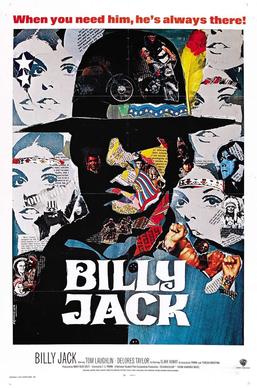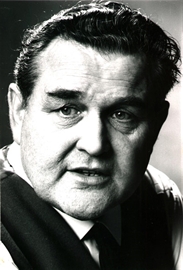Related Research Articles

The Last Picture Show is a 1971 American coming-of-age drama film directed and co-written by Peter Bogdanovich, adapted from the semi-autobiographical 1966 novel The Last Picture Show by Larry McMurtry. The film's ensemble cast includes Timothy Bottoms, Jeff Bridges, Ellen Burstyn, Ben Johnson, Cloris Leachman, and Cybill Shepherd. Set in a small town in northern Texas from November 1951 to October 1952, it is a story of two high-school seniors and long-time friends, Sonny Crawford (Bottoms) and Duane Jackson (Bridges).

Melvin Van Peebles was an American actor, filmmaker, writer, and composer. He worked as an active filmmaker into the 2000s. His feature film debut, The Story of a Three-Day Pass (1967), was based on his own French-language novel La Permission and was shot in France, as it was difficult for a black American director to get work at the time. The film won an award at the San Francisco International Film Festival which gained him the interest of Hollywood studios, leading to his American feature debut Watermelon Man, in 1970. Eschewing further overtures from Hollywood, he used the successes he had so far to bankroll his work as an independent filmmaker.

Billy Jack is a 1971 American action drama independent film, the second of four films centering on a character of the same name which began with the movie The Born Losers (1967), played by Tom Laughlin, who directed and co-wrote the script. Filming began in Prescott, Arizona, in the fall of 1969, but the movie was not completed until 1971. American International Pictures pulled out, halting filming. 20th Century Fox came forward and filming eventually resumed but when that studio refused to distribute the film, Warner Bros. stepped forward.

Yvette Carmen Mimieux was an American film and television actress who was a major star of the 1960s and 1970s. Her breakout role was in The Time Machine (1960). She was nominated for three Golden Globe Awards during her acting career.

Norwood is a 1970 American comedy film that reunites True Grit co-stars Glen Campbell and Kim Darby, also featuring Joe Namath. It was based on the novel of the same title, written by Charles Portis, but updated from the original 1950s setting to 1970.

Jesus' Son is a 1999 drama film that was adapted from the eponymous short story collection by Denis Johnson. The film stars Billy Crudup, Samantha Morton, Holly Hunter, and Dennis Hopper, with Denis Leary, Will Patton, John Ventimiglia, Michael Shannon, and Jack Black in supporting roles. The film was directed by Alison Maclean and written by Elizabeth Cuthrell, David Urrutia, and Oren Moverman.

Gordon Mitchell was an American actor and bodybuilder who made about 200 B movies.

A Time to Kill is a 1996 American legal drama film based on John Grisham's 1989 novel of the same name. Sandra Bullock, Samuel L. Jackson, Matthew McConaughey, and Kevin Spacey star with Donald and Kiefer Sutherland appearing in supporting roles and Octavia Spencer in her film debut. The film received mixed reviews but was a commercial success, making $152 million worldwide. It is the second of two films based on Grisham's novels directed by Joel Schumacher, with the other being The Client released two years prior.
Cain's Cutthroats is a 1971 western-themed exploitation film. It is a story of brutality, betrayal, and revenge set in the period immediately following the end of the American Civil War. The film was released under the alternate titles Cain's Way, The Blood Seekers, and Justice Cain. It stars John Carradine, Scott Brady, Darwin Joston, Valda Hansen, Robert Dix, Tereza Thaw, and Adair Jameson.

The Quentin Tarantino Film Festival, or QT-Fest, was a semi-annual film and multimedia event held by the Austin Film Society in Austin, Texas and attended by film director Quentin Tarantino, where he screened a selection of his favorite films using prints he owns.

Norman Mitchell Driver, known professionally as Norman Mitchell, was an English television, stage and film actor.
Jerry Fielding was an American jazz musician, arranger, band leader, and film composer who emerged in the 1960s after a decade on the blacklist, to create boldly diverse and evocative Oscar-nominated scores, primarily for gritty, often brutally savage, films in western and crime action genres, including the Sam Peckinpah movies The Wild Bunch (1969) and Straw Dogs (1971).

William Ellis Porter II is an American actor and singer. Porter gained notice performing on Broadway before starting a solo career as a singer and actor.
The Consensus 1983 College Basketball All-American team, as determined by aggregating the results of four major All-American teams. To earn "consensus" status, a player must win honors from a majority of the following teams: the Associated Press, the USBWA, The United Press International and the National Association of Basketball Coaches.

Blaxploitation is an ethnic subgenre of the exploitation film that emerged in the United States during the early 1970s, when the combined momentum of the civil rights movement, the Black power movement, and the Black Panthers spurred black artists to reclaim power over their image, and institutions like UCLA to provide financial assistance for students of color to study filmmaking. This combined with Hollywood adopting a less restrictive rating system in 1968. The term, a portmanteau of the words "black" and "exploitation", was coined in August 1972 by Junius Griffin, the president of the Beverly Hills–Hollywood NAACP branch. He claimed the genre was "proliferating offenses" to the black community in its perpetuation of stereotypes often involved in crime. After the race films of the 1940s and 1960s, the genre emerged as one of the first in which black characters and communities were protagonists, rather than sidekicks, supportive characters, or victims of brutality. The genre's inception coincides with the rethinking of race relations in the 1970s.
Motives 2: Retribution is a 2007 direct-to-video sequel to the 2004 thriller film Motives starring Brian J. White, Vivica A. Fox and Sean Blakemore.
Ahmed Samuel Milai, better known as Sam Milai, was an African American editorial and comic strip cartoonist who drew for the Pittsburgh Courier.
Horace Jackson is an American screenwriter, filmmaker and educator.
References
- ↑ Walker, David; Rausch, Andrew J.; Watson, Chris (2009). Reflections on Blaxploitation: Actors and Directors Speak. Scarecrow Press. p. 199. ISBN 978-0-8108-6706-2.
- 1 2 3 4 5 Scott, Sharon (4 December 1971). "'The Bus Is Coming'". The Pittsburgh Courier . Retrieved 19 September 2022.
- ↑ Thompson, Howard (20 November 1971). "The Bus Is Coming' Is Engrossing". The New York Times . Retrieved 19 September 2022.
- ↑ "The Bus Is Coming Reviews". TV Guide . Retrieved 19 September 2022.
- ↑ Leary, Richard (16 December 1971). "'They shall rise up like eagles'". The Village Voice . Retrieved 19 September 2022.
- ↑ Little, John (4 January 1972). "'Bus' Runs Gamut Of Town's Racism". The Pittsburgh Press . Retrieved 19 September 2022.